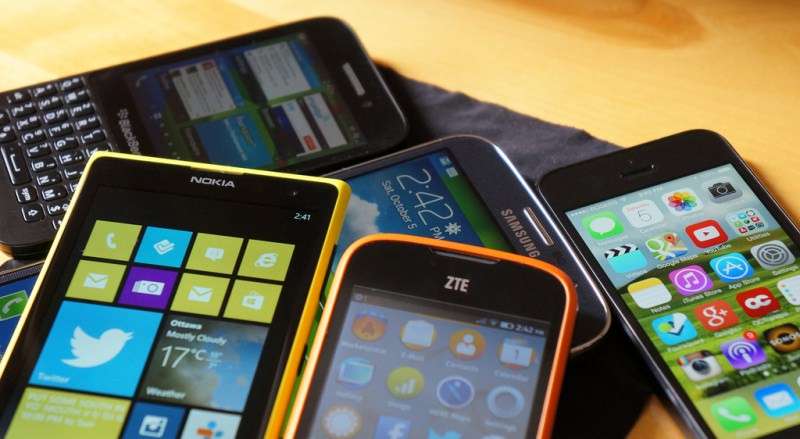Want Citizens' Private Electronic Data in California? Get a Warrant, Officer.
Governor signs bill requiring court orders for accessing things like texts and tracking location data.


A victory for privacy advocates in California: Gov. Jerry Brown has signed the California Electronic Communications Privacy Act. This legislation actually does what the title says. It requires law enforcement in California to get a warrant or court order to access private personal electronic data in the hands of the citizenry. It's a pretty broadly written bill. From Ars Technica:
Notably, the law specifically says that the government is forbidden from "accessing electronic device information by means of physical interaction or electronic communication with the device," barring a short list of exceptions. …
Brian Owsley, a law professor at the University of North Texas, and a former federal judge, lauded the new law's wide berth.
"This legislation provides citizens and non-citizens alike when in California greater protections than they enjoy at the federal or in most other states," he told Ars by e-mail.
"My initial read of the statute is such that it has a broad scope of coverage, which is beneficial in that it does not apply to specific technologies. In the future, as technological developments happen, the statute will have some flexibility in changing with the times. This obviates the need to come back next year and amend the statute, which may or may not be as politically feasible regarding a specific new technology."
The law does include requiring court orders to use stingray devices, tools law enforcement agencies have been using, often secretly, to track location data of smart phones in real time. The American Civil Liberties Union in California is thrilled:
"Governor Brown just signed a law that says 'no' to warrantless government snooping in our digital information. This is a landmark win for digital privacy and all Californians," said Nicole Ozer, Technology & Civil Liberties Policy Director at the ACLU of California. "We hope this is a model for the rest of the nation in protecting our digital privacy rights."
Editor's Note: As of February 29, 2024, commenting privileges on reason.com posts are limited to Reason Plus subscribers. Past commenters are grandfathered in for a temporary period. Subscribe here to preserve your ability to comment. Your Reason Plus subscription also gives you an ad-free version of reason.com, along with full access to the digital edition and archives of Reason magazine. We request that comments be civil and on-topic. We do not moderate or assume any responsibility for comments, which are owned by the readers who post them. Comments do not represent the views of reason.com or Reason Foundation. We reserve the right to delete any comment and ban commenters for any reason at any time. Comments may only be edited within 5 minutes of posting. Report abuses.
Please to post comments


The law does include requiring court orders to use stingray devices, tools law enforcement agencies have been using, often secretly, to track location data of smart phones in real time.
Seems like that's going to violate agreements between local law enforcement and the feds loaning the devices out. Feds trump states.
Agreements don't have the force of law, so it's not violating anything at this point I don't believe. If there's a federal statute requiring stingray devices to be used without a warrant then it would, but I'm pretty sure that law doesn't exist.
Agreements don't have the force of law,
The court will just give deference to any Fed agency.
Speaking of this, anybody know how to get a name and address out of just a cell phone number? Got ripped off on Craigslist, police blew me off (sent me to Federal Trade Commission, and gave me an FBI internet fraud number that doesn't work). Just want to take the punk to small claims.
For some reason the privacy of cell phone numbers seems to be well protected.
If it's for enough money, hire a PI. They might be able to track the person down.
There are pay services out there that do this but you need a legitimate reason to sign up for them. Also, these services are extremely unreliable. Verizon, et al., don't release customer information and these services instead scrape info from other sources which may be old, inaccurate, etc.
I'm sure there's an FYTW clause in there somewhere that will let police do what they've been doing all along. Those charged with interpreting and applying the law just haven't invented it yet.
It requires law enforcement in California to get a warrant or court order to access private personal electronic data in the hands of the citizenry.
Sure.
Is there anything in the bill that you've read that indicates otherwise?
Read the bill? Why would I do that?
Libertarian Moment.
Brian Owsley. I wonder if he is named for Owsley Stanley, hero of the 60's.
THAT'S NOT HOW LAST NAMES WORK. /Morbo
It's quite sad that law after law has to be written and (maybe) passed to eventually protect what the 4th already encompases. In the meantime, Gov't just tramples all over it in the name of "protecting and serving".. something Rights actually do... and violating them does not.
If anything screams "not working" it's this system of USA injustice. Who's being held accountable for the crimes of warrantless searches that have gone on for well over a few decades (just on this issue) up to this point? Absolutely no one. Gov't commits crime after crime, minute after minute, and all that might happen is an eventual... "shucks, we can't do that anymore."
Holy Shit !... Is it "Opposite Day again?".. Already?. The PRC makes a law,...and that law
is in favor of the individual?!?.. And limits the power of Leviathan?.. This must be a hoax. Has to be. I mean the fucking Light Bringer hisself gave the Chancellor for Life speech once again down there today. To ecstatic crowds of zombies; if the MSM news feed can be believed.